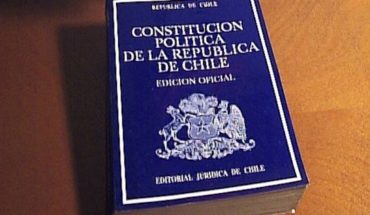Within the different benches and among representatives of all of them, it begins to be discussed who will succeed Elisa Loncón and Jaime Bassa. The next election for the presidency and vice presidency should happen on January 4. Not everyone agrees on the assessment of the outgoing table: if for a good part of the right it has been a tendentious and polarizing leadership, for the others it has successfully fulfilled the task of installing the Convention and, with all the difficulties that such an unprecedented and complex process entails, keeping it afloat. Most constituents, however, seem to understand that the stage we enter requires new talents: moving from the symbolic to the political and from the expressive to the constructive. The first round of the presidential election showed a country of scattered wills that contradicted the idea that that 80% who voted Approve when the proposal for a new constitution was plebiscite wanted the same, or, at least, that they wanted it with the same emphasis and in the same way. Not a few have assumed that the high vote of the reactionary candidacies have as one of their explanations the discursive and performative excesses of the Convention. Everything indicates that a large part of our citizens are asking for transformations, but also calm and stability.
Boric’s candidacy and much of the Convention understood this. At least in appearance. Broad Front constituents arrived Tuesday wearing jackets and two-piece suits. But it is a known thing that the learnings do not happen suddenly, but if you attend to the signals, they seem in progress. This week, for example, the Convention was a roller coaster. In the plenary session on Wednesday, when we had to approve the list of who would make up the Secretariat of Indigenous Participation, what should be a procedure became a reason for conflict. The names proposed by Hernán Larraín, who long ago led a letter of congratulations to the Mapuche causes from the world of the right -rejected by the hard sectors and managed by those close to him-, were objected to outright by Natividad Llanquileo, representative of the most intransigent field of the seats, where not everyone thinks alike or easy understanding reigns. Beyond the suitability of the proposed names, henceforth they paid the righteous for sinners, and what could have been an occasion for agreement, ended in a confrontation that brought Chile Vamos together outside the building, while the rest of us voted for the proposed ones, one by one, inside. Instead of giving a demonstration of constructive will and ability to reach agreements, the lack of coordination and lack of personality of the rest ended up yielding to the sectarian cry. As the intelligent Adolfo Millabur told me: “We shot ourselves in the feet.”
The rest of the afternoon was no better. The session lasted late into the night in a u.s. unproductive discussion of violence. Before the trip to Biobío, members of the Udi and Republicans had proposed a declaration against political violence to be voted by the plenary, but under the excuse of the end of the schedule set for that session it was postponed, now putting it on the table together with another statement presented by the Non-Neutral Independents, which also rejected such violence, but he added several others to consider in the sentence.
The right-wing statement had an obvious political intent. Of course, that the same world that continues to justify a coup d’état that had the burden of deaths and torture that we all know, now presents itself as the great defender of peace, is at least disconcerting. That violence encompasses much more than the burning of metro stations, commercial premises and barricades, is also a fact of the cause, even more so when what we have to discuss is a social agreement called to understand not only its physical manifestations, but its root causes. But to deny that such vandalism is violence is equally absurd. It is not by acknowledging that there are reasons for fury that a crime can be justified. Community life would not be possible if we did. On the other hand, the condemnation of police violence and its transgression of the professional use of force cannot lead to ignorance that criminal violence also exists. And in that Byzantine discussion we got stuck all the rest of the afternoon, because some were not willing to give point to the others, getting lost in a swamp of recriminations that has little to do with the constituent work, or, at least, with the one that increasingly urgently summons us. Weather torewards, and from the phase of the imputations, it is urgent that we move to the one of the main lines of solution. From the exposure of disagreements, to the preparation of agreements. From blame, to projects. From the past and the present, to the future. That is what many expect from us. For the above there are the courts and parliamentarians.
On Thursday, however, the Political System Commission showed signs of substantial progress. In a climate of respect and attention, each of its members presented for four minutes their preferences for governance models. According to the report of “We have to talk about Chile”, carried out jointly by the University of Chile and the Catholic University, there “the constituent conventions were explicit in thanking the opportunity to participate in the public hearings carried out by the Commission, and positively valued the work and presentations of the exhibitors, indicating that many of them had changed the preconceived ideas with which they had come to the Commission thanks to the arguments presented in the hearings.” Allowing oneself to change one’s mind after listening to arguments is the basis of any deliberative process that boasts of such.
Practically all agreed on the crisis of the hyper-presidential system that currently governs us and, the majority, that after attending to the reasons given, its causes were multiple and complex: the characteristics of the political regime, the design of the electoral system, poor regulation and problems of political parties. Fourteen of its 25 members expressed their predilection for an attenuated presidential system and four of them – except Patricia Politzer, all of the FA – for the parliamentary regime. It is worth saying that here the ideological and partisan guidelines were confused in such a way that udis, socialists and communists allowed themselves to be in the same block. Ten said they preferred bicameralism, although redefining the powers of each chamber, and seven would choose to move to a unicameral system. They all agreed on “the need for the discussions and agreements carried out within this Commission to be carried out in permanent coordination with other commissions of the Constitutional Convention, particularly with the Commission on Constitutional Principles, Democracy, Nationality and Citizenship; the Commission on State Form, Ordering, Autonomy, Decentralization, Equity, Territorial Justice, Local Governments and Fiscal Organization; and the Commission on Justice Systems, Autonomous Control Bodies and Constitutional Reform”. The constitutional “organic” is advancing at a faster rate than the “dogmatic” one, and it is to be hoped that it will serve as an example.
On Friday, the Human Rights Commission, the only one of the installation period that did not contribute rules to the Regulations, presented its conclusions – Report of Historical Truth, Integral Reparation and Guarantees of Non-Repetition – in a ceremony that took place in the hemicycle. Daniela Millaleo sang and danced the collective Cueca Sola. Several of the organizations that the commission listened to while it was in operation were present: victims of the dictatorship, defenders of nature and the environment, exponents of indigenous peoples and Afro-descendant tribals and victims of human rights violations during the outbreak. Senator-elect Fabiola Campillai and also a representative of the trans sex workers union Amanda Jofré spoke. He closed his coordinator, Roberto Celedón, who among other things said that this had been one of the most beautiful jobs of his life. The emotion of pain and debt reigned. All that history from which this process starts, not to forget, but hopefully to overcome.
It is quite clear that the tasks of the next table will be essentially two: internal coordination, that is, the ability to unite majority wills to build norms that must be approved by 2/3 of the conventional ones, and generate an institutional spokesperson, capable of representing the bulk of the Convention by establishing a complicit and broad dialogue with the citizens, attentive to its undeniable diversity, capable of representing it in those common and increasingly democratizing minimums that the vast majority expect from the agreement that will govern us in the coming decades. We must not forget that the Constitutional Convention will offer the country a draft Constitution, which must be approved before it begins to take effect.
The Convention: between what was and what should be
December 5, 2021 |





